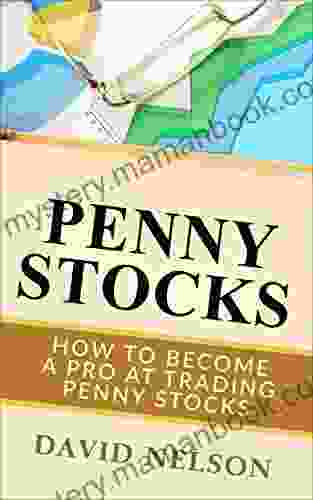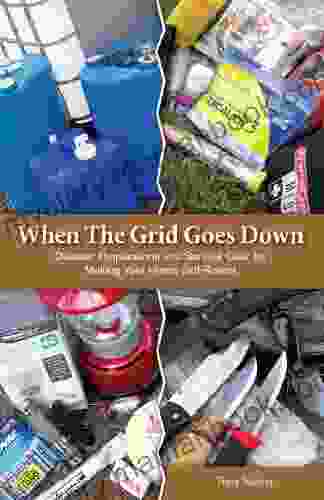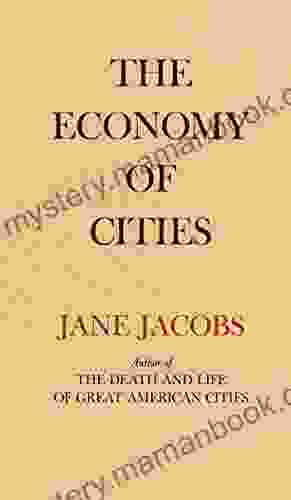The Economy of Cities: Jane Jacobs' Enduring Insights into Urban Prosperity


Jane Jacobs was a pioneering urban thinker whose work has profoundly influenced our understanding of cities. Her 1961 book, The Economy of Cities, remains a seminal text in urban planning and economic development. In this article, we will explore Jacobs' key insights into the economy of cities and examine their relevance to contemporary urban challenges.
4.6 out of 5
| Language | : | English |
| File size | : | 4324 KB |
| Text-to-Speech | : | Enabled |
| Screen Reader | : | Supported |
| Enhanced typesetting | : | Enabled |
| Word Wise | : | Enabled |
| Print length | : | 262 pages |
Diversity and Complexity
Jacobs argued that the most prosperous cities are those that are diverse and complex. She believed that a mix of land uses, building types, and economic activities within a small geographic area fosters innovation, creativity, and economic resilience. Jacobs famously coined the term "urban vitality" to describe the vibrant and multifaceted character of successful cities.
In contrast, Jacobs criticized the modernist planning practices of her time, which often prioritized large-scale, single-use developments. She argued that these developments, such as suburban housing projects and industrial parks, destroyed the diversity and vitality that were essential for economic growth.
The Importance of Local Knowledge
Jacobs believed that local knowledge was crucial for understanding and shaping the economy of cities. She argued that planners and policymakers should listen to the voices of residents, businesses, and community organizations to learn about the unique needs and assets of a particular neighborhood or district.
Jacobs' emphasis on local knowledge is particularly relevant in today's era of rapid globalization and technological change. In a world where businesses and residents can easily relocate, it is more important than ever to understand the specific factors that contribute to the economic vitality of a particular city.
The Role of Small Businesses
Jacobs was a staunch advocate for small businesses, which she saw as the backbone of urban economies. She argued that small businesses create jobs, provide essential services, and contribute to the overall diversity and vitality of cities.
Jacobs' analysis of the role of small businesses has been borne out by subsequent research. Studies have shown that small businesses account for a significant proportion of employment and economic output in cities. Moreover, small businesses are often more innovative and adaptable than larger corporations, making them essential for economic resilience.
The Importance of Public Space
Jacobs believed that public space played a vital role in the economy of cities. She argued that streets, parks, and other public spaces are essential for social interaction, economic exchange, and civic engagement.
Jacobs' insights into the importance of public space have influenced urban planning and design practices around the world. Today, many cities are investing in the creation and improvement of public spaces, recognizing their value for economic development and community well-being.
Challenges and Opportunities
While Jacobs' insights into the economy of cities remain relevant today, urban areas face new challenges and opportunities in the 21st century. These include:
- Globalization: The increasing interconnectedness of the global economy has both benefits and challenges for cities. Cities that are able to attract and retain global talent and investment can benefit from economic growth. However, cities that are unable to compete in the global economy may experience job losses and economic decline.
- Technology: Technological advancements are rapidly changing the way we live and work. Automation and other technological innovations could have a significant impact on the economy of cities, particularly in sectors that rely on low-skilled labor.
- Climate change: Climate change is already having a significant impact on cities around the world. Coastal cities are particularly vulnerable to rising sea levels and other climate-related disasters.
Jane Jacobs' The Economy of Cities remains an indispensable guide for understanding the economic dynamics of urban areas. Her insights into the importance of diversity, complexity, local knowledge, small businesses, and public space continue to be relevant for policymakers and urban planners today. By embracing Jacobs' principles, cities can foster economic prosperity, social equity, and environmental sustainability.
4.6 out of 5
| Language | : | English |
| File size | : | 4324 KB |
| Text-to-Speech | : | Enabled |
| Screen Reader | : | Supported |
| Enhanced typesetting | : | Enabled |
| Word Wise | : | Enabled |
| Print length | : | 262 pages |
Do you want to contribute by writing guest posts on this blog?
Please contact us and send us a resume of previous articles that you have written.
 Top Book
Top Book Novel
Novel Fiction
Fiction Nonfiction
Nonfiction Literature
Literature Paperback
Paperback Hardcover
Hardcover E-book
E-book Audiobook
Audiobook Bestseller
Bestseller Classic
Classic Mystery
Mystery Thriller
Thriller Romance
Romance Fantasy
Fantasy Science Fiction
Science Fiction Biography
Biography Memoir
Memoir Autobiography
Autobiography Poetry
Poetry Drama
Drama Historical Fiction
Historical Fiction Self-help
Self-help Young Adult
Young Adult Childrens Books
Childrens Books Graphic Novel
Graphic Novel Anthology
Anthology Series
Series Encyclopedia
Encyclopedia Reference
Reference Guidebook
Guidebook Textbook
Textbook Workbook
Workbook Journal
Journal Diary
Diary Manuscript
Manuscript Folio
Folio Pulp Fiction
Pulp Fiction Short Stories
Short Stories Fairy Tales
Fairy Tales Fables
Fables Mythology
Mythology Philosophy
Philosophy Religion
Religion Spirituality
Spirituality Essays
Essays Critique
Critique Commentary
Commentary Glossary
Glossary Bibliography
Bibliography Index
Index Table of Contents
Table of Contents Preface
Preface Introduction
Introduction Foreword
Foreword Afterword
Afterword Appendices
Appendices Annotations
Annotations Footnotes
Footnotes Epilogue
Epilogue Prologue
Prologue Peter O Mahoney
Peter O Mahoney Anoir Ou Chad
Anoir Ou Chad Marsha Carr
Marsha Carr Luigi Andrea Berto
Luigi Andrea Berto Bess Streeter Aldrich
Bess Streeter Aldrich Nicholas Sansbury Smith
Nicholas Sansbury Smith Michael S Roth
Michael S Roth Manish Kumar
Manish Kumar Dan Egan
Dan Egan Vera Brook
Vera Brook Jason Rekulak
Jason Rekulak Walt Whitman
Walt Whitman Joe Dispenza
Joe Dispenza Walter Mengler
Walter Mengler Timothy Gene Sojka
Timothy Gene Sojka Petros C Mavroidis
Petros C Mavroidis Jane Jacobs
Jane Jacobs Craig Stephens
Craig Stephens Michael Robertson
Michael Robertson Gareth Worthington
Gareth Worthington
Light bulbAdvertise smarter! Our strategic ad space ensures maximum exposure. Reserve your spot today!

 Brett SimmonsAdventure Comics (1935-1983) #467: The Fortress of Solitude and the Legion of...
Brett SimmonsAdventure Comics (1935-1983) #467: The Fortress of Solitude and the Legion of...
 Jaylen MitchellThe Ultimate Guide to Making Restaurant-Quality Recipes at Home with Copycat...
Jaylen MitchellThe Ultimate Guide to Making Restaurant-Quality Recipes at Home with Copycat...
 Chuck MitchellThe Ultimate Guide to Becoming a Pro at Trading Penny Stocks: A Step-by-Step...
Chuck MitchellThe Ultimate Guide to Becoming a Pro at Trading Penny Stocks: A Step-by-Step... Deion SimmonsFollow ·11.1k
Deion SimmonsFollow ·11.1k Jeffery BellFollow ·6.6k
Jeffery BellFollow ·6.6k Stuart BlairFollow ·9.8k
Stuart BlairFollow ·9.8k Leon FosterFollow ·17.1k
Leon FosterFollow ·17.1k Chinua AchebeFollow ·13.6k
Chinua AchebeFollow ·13.6k Elliott CarterFollow ·19.8k
Elliott CarterFollow ·19.8k Pablo NerudaFollow ·14.2k
Pablo NerudaFollow ·14.2k Jerry WardFollow ·7.1k
Jerry WardFollow ·7.1k

 Luke Blair
Luke BlairWhen the Grid Goes Down: Disaster Preparations and...
In today's modern...

 Diego Blair
Diego BlairComputer Virus Guide: Everything You Need to Know to Stay...
Computer viruses...

 Dale Mitchell
Dale MitchellThe Whiskey of Our Discontent: A Literary Exploration of...
John Steinbeck's The...

 Mark Mitchell
Mark MitchellA Culinary Odyssey: Exploring the Delectable World of...
An to Southern...
4.6 out of 5
| Language | : | English |
| File size | : | 4324 KB |
| Text-to-Speech | : | Enabled |
| Screen Reader | : | Supported |
| Enhanced typesetting | : | Enabled |
| Word Wise | : | Enabled |
| Print length | : | 262 pages |










